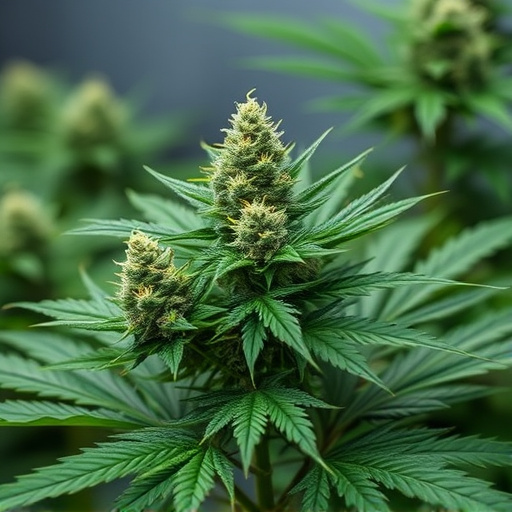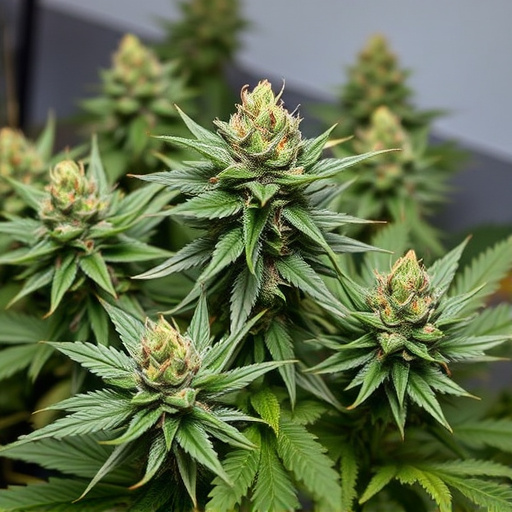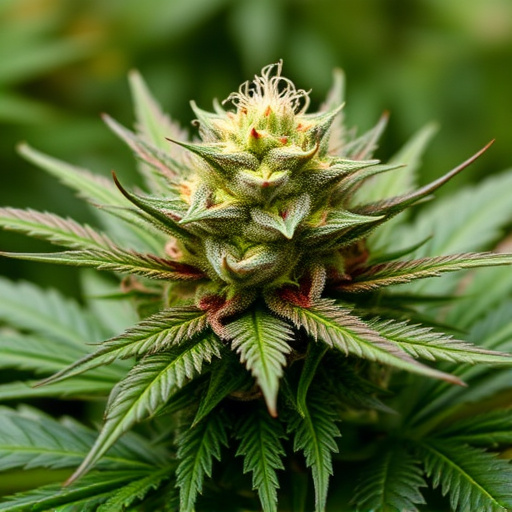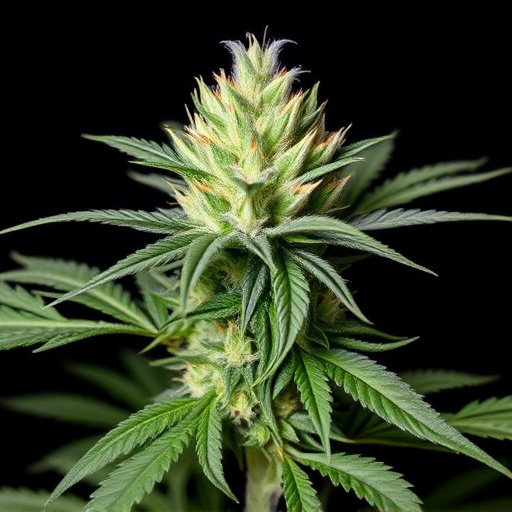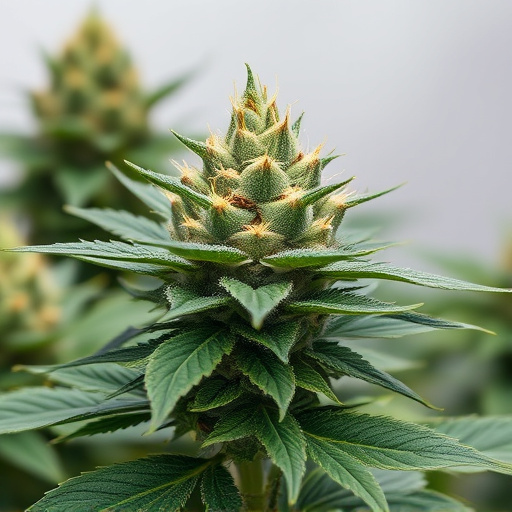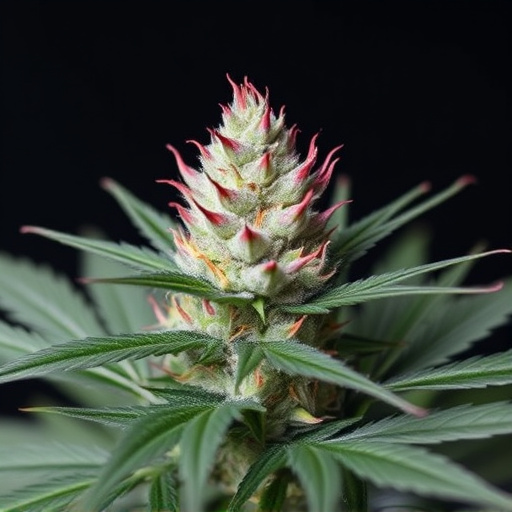Every individual's response to cannabis varies due to their unique endocannabinoid system (ECS) composition and genetic differences in cannabinoid metabolism. These factors influence how THC and other cannabinoids interact with brain receptors, impacting mood, memory, pain, and more. When seeking the best hybrid cannabis strains for specific purposes like pain relief or relaxation, understanding these personal variations is crucial for tailoring a suitable, effective experience.
“Unraveling the enigmatic reasons behind the diverse impacts of weed on individuals is a fascinating journey into the intersection of science and personal biology. Cannabis, with its complex composition, interacts uniquely with each person due to genetic variations affecting cannabinoid reception and our endocannabinoid system’s role in mediating its effects. This article explores these factors in detail, shedding light on why ‘the green rush’ isn’t universal. We’ll delve into the science behind it, uncover the best hybrid cannabis strains for specific desires, and understand personal factors that shape these experiences, empowering informed decisions.”
- The Science Behind Individual Reactions to Cannabis
- – Genetic variations and their impact on cannabinoid reception
- – How our endocannabinoid system influences the high experience
The Science Behind Individual Reactions to Cannabis
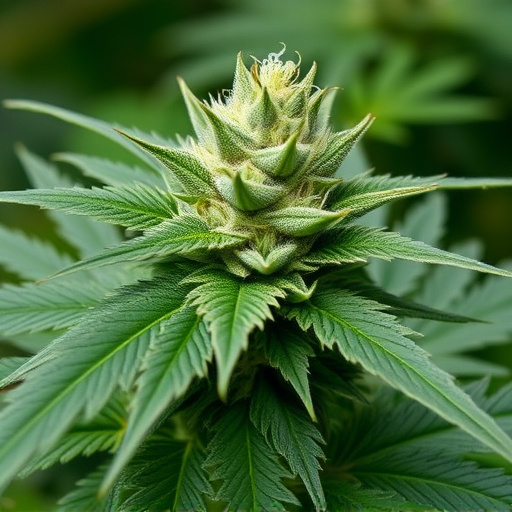
The way cannabis affects individuals can vary greatly, and science has been working to unravel the complexities behind these differences. Every person’s endocannabinoid system (ECS) is unique, playing a significant role in regulating mood, appetite, memory, and pain perception. This intricate system interacts with the compounds found in cannabis, known as cannabinoids, leading to diverse experiences. One of the most well-known cannabinoids, THC, is responsible for the psychoactive effects, but it also binds to various receptors throughout the body, explaining why different people have distinct reactions.
Genetics and individual biochemistry contribute to these variations. For instance, some individuals may metabolize THC more quickly, leading to a shorter duration of its effects. Others might have higher levels of certain receptors, intensifying their sensitivity to cannabinoids. Additionally, pre-existing conditions or medications can interact with cannabis, further personalizing the experience. Understanding these scientific factors is crucial in navigating the vast world of cannabis, especially when seeking the best hybrid cannabis strains for specific needs and preferences.
– Genetic variations and their impact on cannabinoid reception
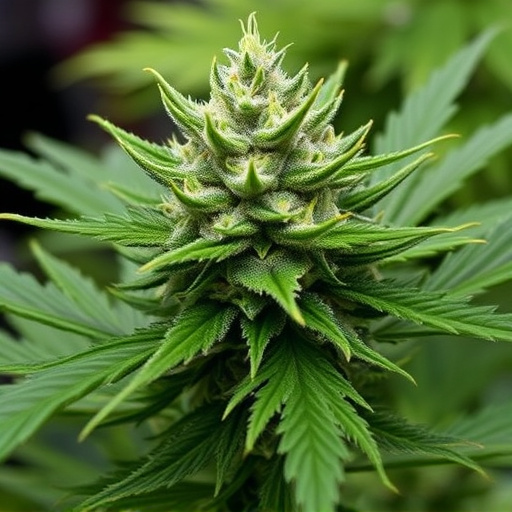
Every individual’s response to cannabis, whether from recreational use or therapeutic applications, varies greatly. A significant factor in this variance is genetic variations in the way our bodies process and interact with cannabinoids, specifically THC (tetrahydrocannabinol) and CBD (cannabidiol). These variations exist in receptors located within our brain and nervous system, known as CB1 and CB2 receptors, which are responsible for regulating mood, memory, pain perception, and immune function.
For instance, some people have higher or lower levels of the enzyme FAAH (fatty acid amide hydrolase), which breaks down anandamide, a naturally occurring endocannabinoid linked to pleasure, relaxation, and memory. These genetic differences can lead to more pronounced effects from cannabis consumption. Understanding these individual variations is crucial when considering the effectiveness of best hybrid cannabis strains for specific conditions or desires, be it pain management, stress relief, or recreational enjoyment.
– How our endocannabinoid system influences the high experience
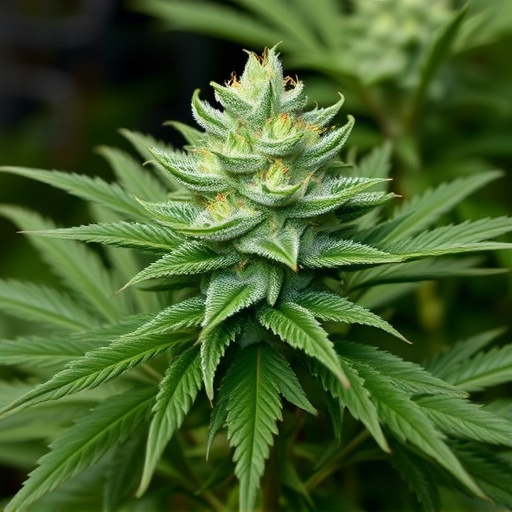
Our bodies are equipped with an intricate system known as the endocannabinoid system (ECS), which plays a pivotal role in regulating various physiological processes, including mood, memory, appetite, and pain perception. When we consume cannabis, whether through smoking or edibles, cannabinoids like THC (tetrahydrocannabinol) interact with this ECS, leading to the characteristic ‘high’ experience. The complexity of our ECS varies from person to person, which is why the same strain, such as popular best hybrid cannabis strains, can produce different effects on different individuals.
This interaction between cannabinoids and the ECS results in the release of neurotransmitters, influencing neural communication. The variability in ECS activity means that some people may experience heightened sensitivity to THC’s effects, leading to more intense highs, while others might have milder reactions. This is why exploring different best hybrid cannabis strains can offer a personalized journey, catering to individual preferences and ensuring everyone can enjoy their unique cannabis experience.
Every individual’s reaction to cannabis is unique, shaped by a complex interplay of genetic factors and our own endocannabinoid systems. This means that what works as a soothing “high” for one person might be more energizing or even unsettling for another. Understanding these variations can help us make informed choices when selecting the best hybrid cannabis strains for our needs, ensuring a more personalized and enjoyable experience.


